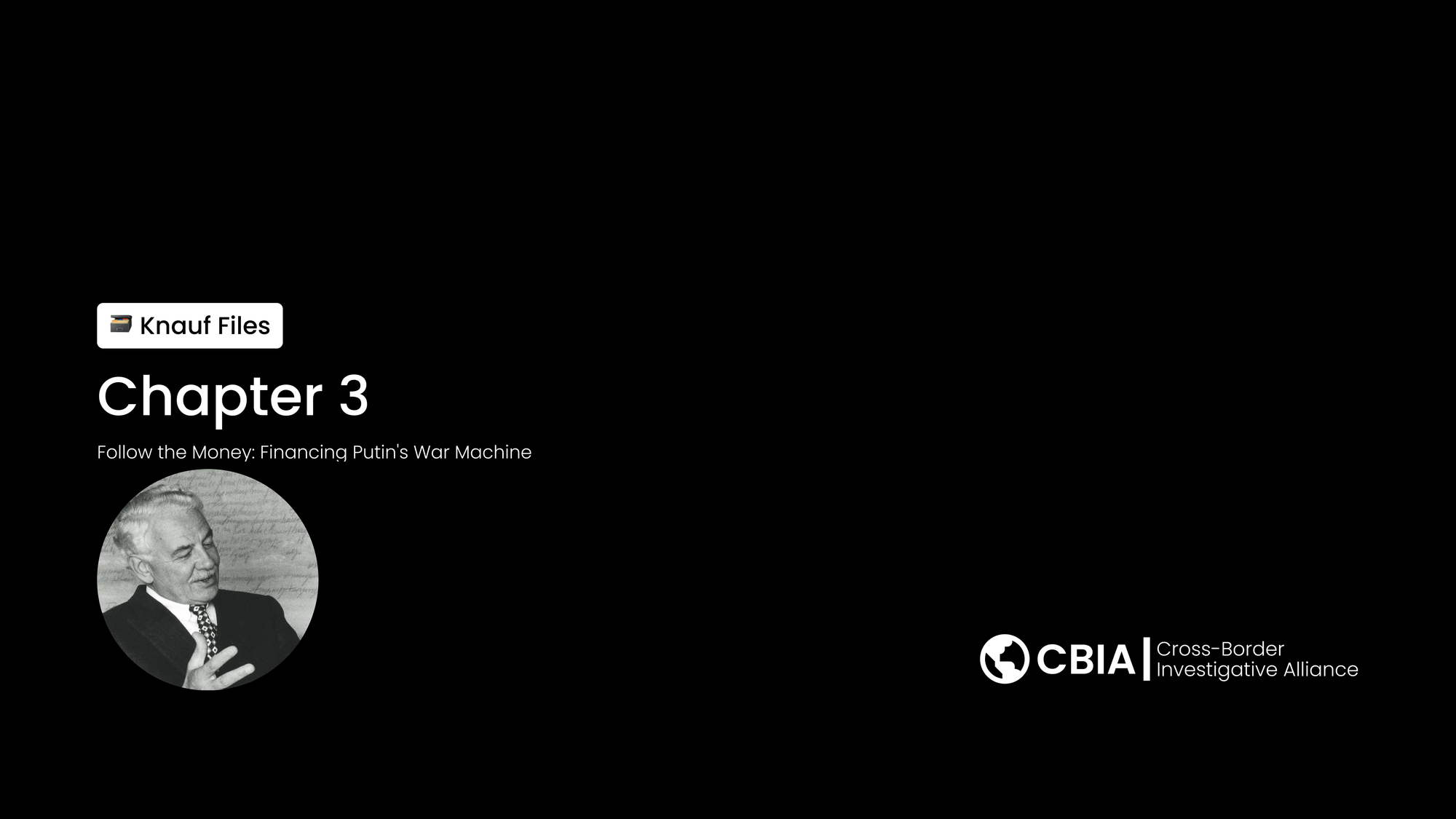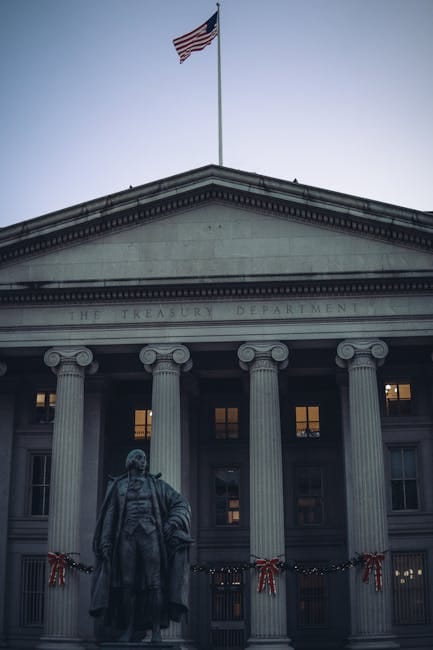Chapter 3: Follow the Money

Financing Putin's War Machine
How a German Family Business Became a Major Foreign Contributor to Russia's War Budget Through Tax Payments
During Russia’s invasion of Ukraine, the German construction materials company Knauf maintained its business operations in Russia. Throughout 2022 and 2023, Knauf paid significant taxes to the Russian government. In 2022, Knauf’s tax payments to Russian federal and regional budgets totaled approximately $117 million. In 2023, Knauf paid over 11.7 billion rubles (about $130 million), and deferred an additional 2.3 billion rubles (about $26 million) to 2024. These payments were made as part of Knauf’s standard business obligations and were not hidden or in violation of international sanctions.
Knauf’s continued presence in Russia during the war led to its designation as an “international sponsor of war” by Ukraine’s National Agency on Corruption Prevention (NACP) in November 2023. The company operated around 20 plants and employed about 4,000 people in Russia during this period. Knauf’s management stated that their decision to remain in Russia was motivated by the need to protect their business interests and local employees.
All corporate tax payments in Russia, including those from foreign companies like Knauf, are collected into the state budget. This budget funds all government expenditures, including military spending. Russian government documents and independent investigations confirm that corporate tax revenues contributed to defense spending during the conflict, though there is no evidence that Knauf’s taxes were specifically allocated to military contracts.
Knauf’s Russian operations became more profitable during the war. In 2022, the company reported increased revenue and higher profit margins, partly because many Western competitors left the Russian market. This allowed Knauf to expand its market share and benefit from ongoing construction and infrastructure projects in Russia. The company’s management stated that its continued presence was to protect business interests and local employees, not to support the war effort.
Investigative journalists and Ukrainian authorities have documented that Knauf’s building materials were used in reconstruction projects in Russian-occupied territories, such as Mariupol. Knauf has stated that it does not control the end use of its products after they are sold through independent dealers, and it denies directly supplying materials for military use.
In response to the war and Western sanctions, Russia introduced additional taxes on profitable companies, including the “Solidarity Tax,” which Knauf paid in 2022. The company also deferred 2.3 billion rubles in taxes from 2023 to 2024, as confirmed by internal documents and media reports.
Economic analyses indicate that every dollar of foreign corporate tax paid in Russia generates additional economic activity, indirectly supporting the wartime economy. Knauf’s operations in Russia supported thousands of jobs and supplier networks, further contributing to the Russian economy during the war.
Credible reports indicate that Knauf’s Russian management cooperated with local authorities in the mobilization of employees for military service, although the company denies any active role in this process.
Key Facts Table
| Fact | Evidence Supported | Sources |
|---|---|---|
| Knauf paid ~$117M in Russian taxes in 2022 | Yes | |
| Knauf paid >11.7B rubles in 2023, 2.3B deferred to 2024 | Yes | |
| Designated “international sponsor of war” by Ukraine | Yes | |
| Taxes contributed to Russian state budget (incl. military) | Yes (indirectly) | |
| Direct supply to Russian military | No evidence | |
| Knauf materials used in occupied territories | Yes (indirect) | |
| Profitability increased in Russia during war | Yes | |
| Involvement in employee mobilization | Credible reports |
Conclusion
Knauf’s tax payments to the Russian government during the invasion of Ukraine are well-documented and substantial. These payments contributed to the Russian state budget, which funded military expenditures during the war. There is no evidence that Knauf directly supplied the Russian military or violated sanctions. However, by continuing its business and tax payments in Russia during the conflict, Knauf became a significant indirect contributor to the Russian state’s war resources.
Sources:
The Insider, 2023
National Agency on Corruption Prevention, 2023
Russian Federation State Budget, Ministry of Finance
Russian Finance Ministry Internal Memo, Dec 2022
Knauf Internal Financial Documents, 2022-2023
LeaveRussia.org
Russian Federation Tax Code Amendments, Federal Law 421-FZ
Knauf Legal Analysis, Mar 2024
Atlantic Council Economics Report, 2023
Orenburg Regional Economic Data, 2023





